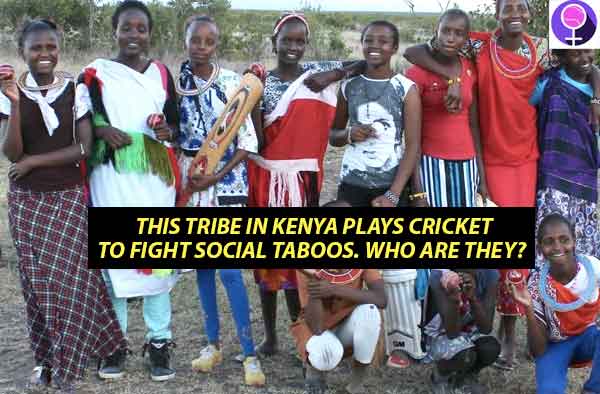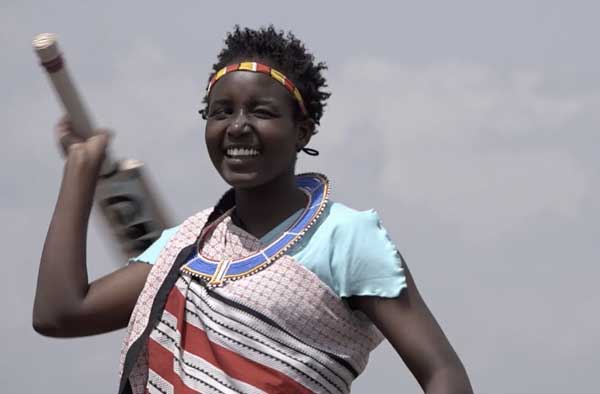The sport in general has the power to unite the world. From the differences that arise in different cultures, sport has the ability to unite the people from different places despite their cultural differences. Cricket is almost played in every corner of the world. It has started to spread its wings and has reached every part of the world. It has been played in most parts ranging from urban cities of Europe to the rural parts of the Africa. Many of the tribes in Africa have started playing sports.

Among the pastoralist communities of Laikipia which is situated in Kenya, women have very low status – their main role is to bear children, look after the household, build houses, walk long distances in search of water and firewood and tend to small livestock. Due to lack of education and exposure, women are often not aware of their rights. Girls in this region are still threatened by retrogressive cultural practices such as female genital mutilation and early marriages, which results in girls dropping out of school early. Female genital mutilation (FGM) is a cultural practice that comprises partial or complete removal of the external genitalia for non-therapeutic purposes.
Although the practice is prohibited in Kenya, through presidential decrees of 1982 and 1989, the fact is that it is still highly practiced by most pastoralist communities and a few other communities. An estimated 140 million girls and women globally have been subjected to FGM. Many undergo FGM as young as 8 or 9 and are then pulled out of school and married off. The decision to undergo the rite is usually made by the father who is the head of the household.
This resulted in the formation of a group of individuals called as Maasai Cricket Warriors. They have dropped their spears for cricket bats. It was a group formed by males in the community to fight against these practices and for women rights. Their main motto is to empower girls and women in the society. Sports can contribute to the transformation in the status and lives of women and girls so that they can realize their rights and their full potential. Through cricket participation they promote excellence, youth leadership, reproductive health rights and economic empowerment to help girls and young women escape the cycle of poverty and retrogressive cultural practices. Today, the Warriors bowl and bat in their traditional clothing – bloodred skirts and bright, beaded necklaces.They say that throwing the ball is like throwing a spear and batting is like using a shield. They visit Maasai schools to teach cricket basics.
The game of cricket arrived in the area in 2007. In 2009, the Warriors team was formed and the novelty of the Maasai taking up the game soon attracted media attention. The team was invited to Cape Town for the Last Man Stands championship in 2012. Since then the Warriors have never looked back and are taking massive steps to end injustice in the community. Even they have formed a Women’s team.

The Maasai Ladies Cricket Team uses the sport to spread their anti-FGM message across Kenya. They encourage girls to play. Then during the breaks in game, they provide sex and health education. There is a film based on the Maasai Warriors named ‘Warriors’ that films the journey from the dusty plains of the Southern Kenya to the green turf of the Lord’s Cricket Ground.
The sport has already saved hundreds of girls from FGM, but there is still a long way to go to change the cultural beliefs of the elders. They believe that changing this tradition cannot happen overnight or even in next 10 years, but they are determined to bring about change in their community. We wish the team good luck and hope that these brutal practices are stopped and hope to see the team participate in global tournaments.
Very informative article. Keep writing and spreading awareness. Cheers.